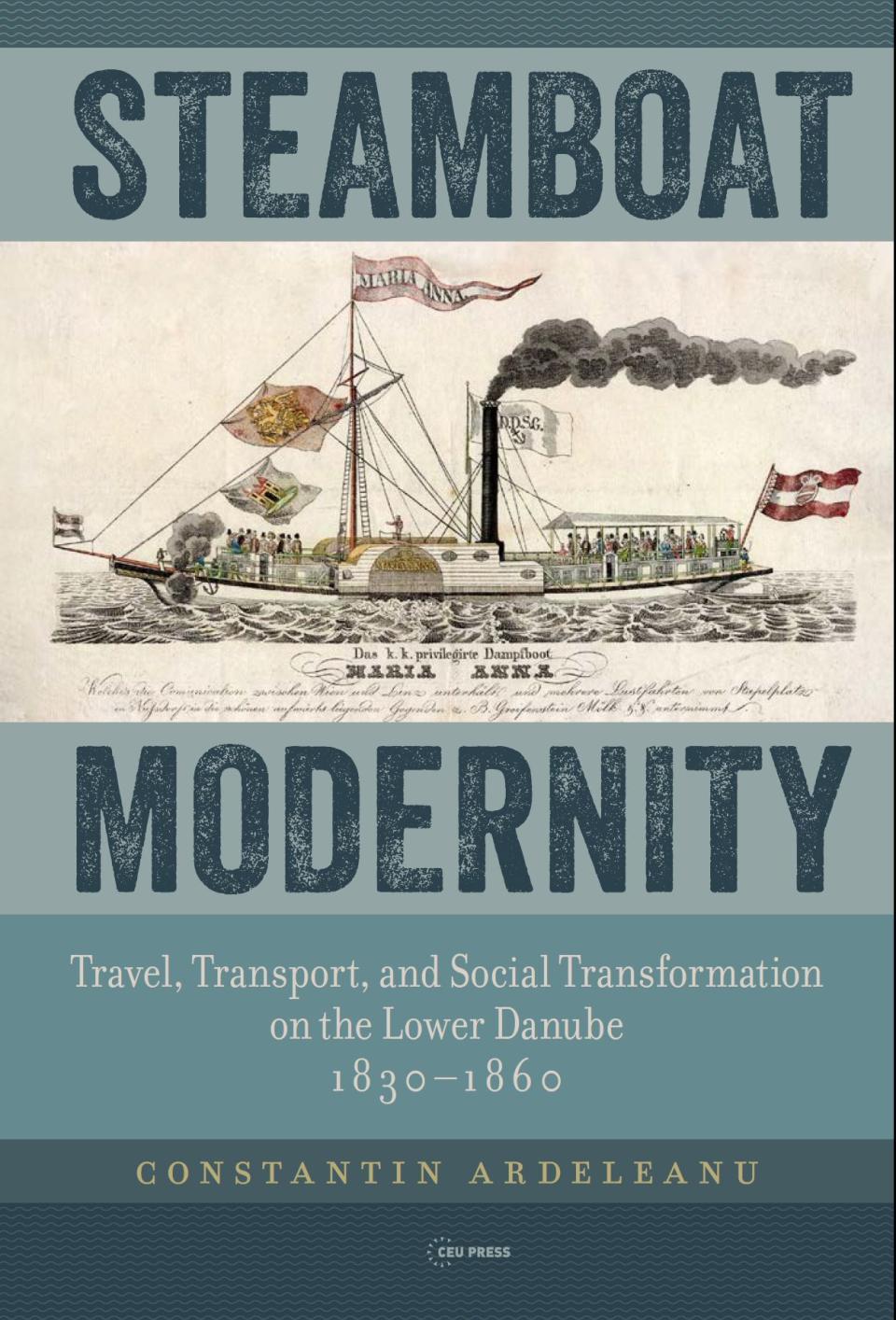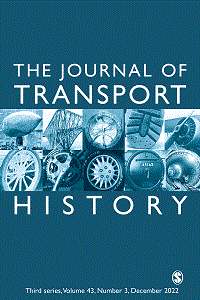
Constantin Ardeleanu, Steamboat Modernity. Travel, Transport, and Social Transformation on the Lower Danube, 1830–1860
Through a skillful combination of economic and cultural history, this book describes the impact on Moldavia and Wallachia of steam navigation on the Danube. The Danube route integrated the two principalities into a dense network of European roads and waterways. From the 1830s to the 1860s, steamboat transport transformed time and space for the areas that benefited from regular services. River traffic accelerated urban development along the Lower Danube and contributed directly to institutional modernization in one of Europe’s peripheries.
Beyond technological advances and the transportation of goods on a trans-imperial waterway, steamboat travel revolutionized human interactions, too. The book offers a fascinating insight into the social and cultural milieu of the nineteenth century, drawing on first-hand accounts of Danube cruising. Describing the story of travelers who interacted, met, and visited the places they stopped, Constantin Ardeleanu creates a transnational history of travel up and down the Danube from Vienna to Constantinople. The pleasures and sometimes the travails of the travelers unfold against a backdrop of technical and economic transformation in the crucial period of modernization.

Constanța Vintilă, “Fanarioți și supuși în porunci și nizamuri (1700-1830)”, Revista istorică, 2023
The Phanariots and their subjects in official documents (1700-1830)
Governing by commandments is the purpose of our study, focusing on those commands that have at the center of the analysis the subjects and their relationship with power. Therefore, our research follows several stages. In the first part, we will try to observe how a command is born and what are the sources of its transmission to the population. In the second part, we will dwell on the commandments aimed at creating the subject welfare and ensuring a security framework necessary for the
economic well-being of the population; so that the last part is dedicated to the reception of these commands among the population and the way they were implemented.

Andrei Sorescu, “The Same Causes Occasioning the Same Effects”: The “Jewish Question”, the “Chinese Question” and the Global Precedents of Exclusion in Late Nineteenth Century Central Europe, Journal of Global History, 2024
Why was the “Chinese Question” of immigration control and exclusion in the United States imagined as an appealing precedent for dealing with the “Jewish Question” of emancipation and citizenship in fin-de-siècle Romania, Hungary, and Austria? The present article examines a vast corpus of parliamentary debates, press, and pamphlets, in order to demonstrate how thinking in terms of “questions” enabled historical actors to place themselves within a “global moment” by highlighting structural similarities that would justify the analogy.
By rhetorically turning to an America that was placed at the forefront of “liberal” progress, yet now began to explicitly place limits to its inclusiveness, politicians in Central and Eastern Europe sought to present their own exclusionary policies as timely and acceptable, rather than anachronistic affronts to the spirit of the age. Drawing upon this global precedent was therefore hoped to ward off criticism: if “civilized” America could draw the line, be it as a matter of principle or pragmatism, then antisemitism could be justified with reference to Sinophobia.

Constantin Ardeleanu, Commercial and political needs demand the establishment of a Black Sea port’: Infrastructure development, opportunities and anxieties in an Eastern European periphery (1860s–1870s),” The Journal of Transport History, Volume 44, issue 3, 2023: 436-456.
This paper is the biography of a failed infrastructural project: that of building a Romanian seaport and of linking it to the mainland via a canal and/or a railway. It details its rich life, its initiators and partisans, but also its (mostly foreign) contenders; “born” in the early 1860s in a certain geopolitical, economic or infrastructural environment, the initiative morphed in the coming years in close connection and in direct competition with complementary or rival projects.
While the plan of having an “independent” Romanian Black Sea port remained central to the Jibrieni project, most of its other infrastructural components were continuously reimagined, so as to fit into the Romanian government’s priorities and – with them – into the extremely dynamic transportation map of Central and Eastern Europe in the 1860s–1870s.
